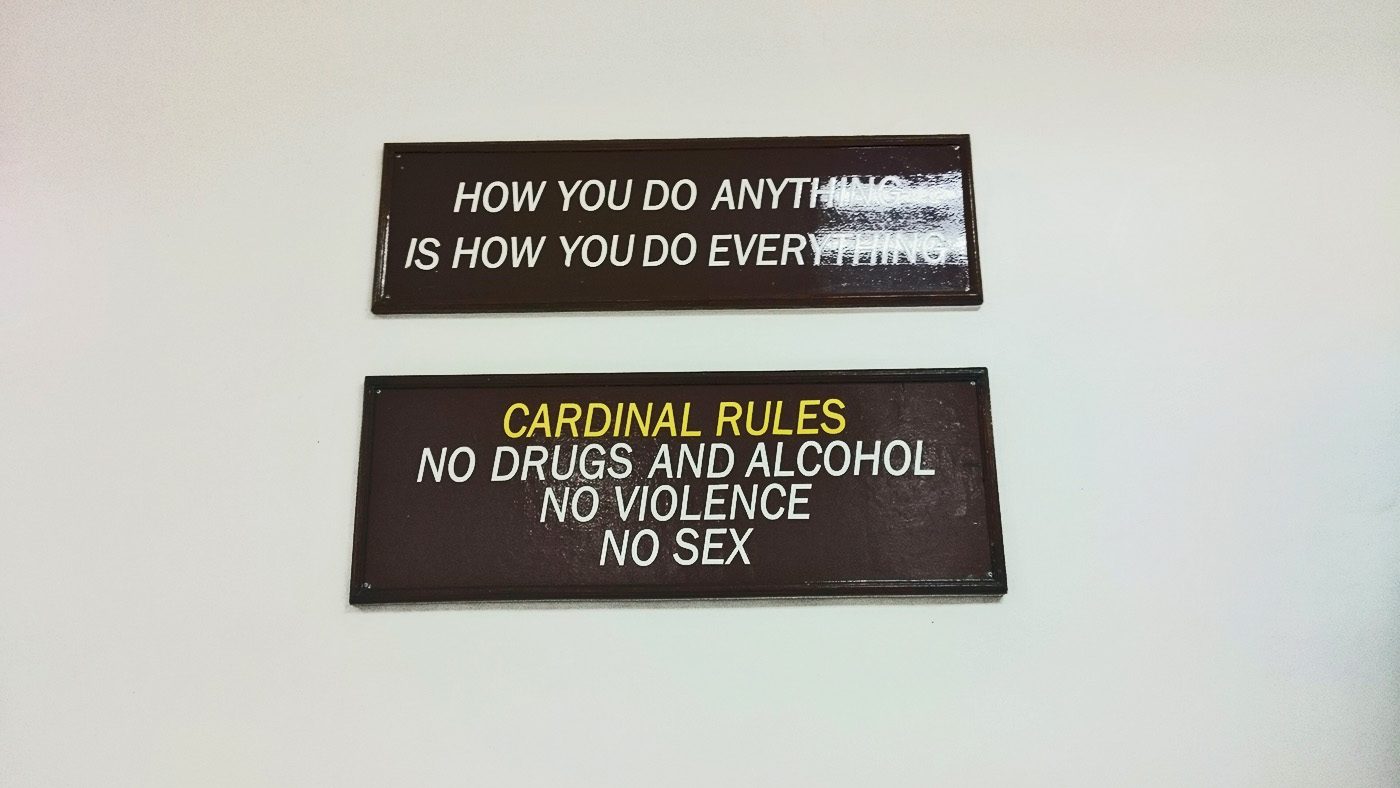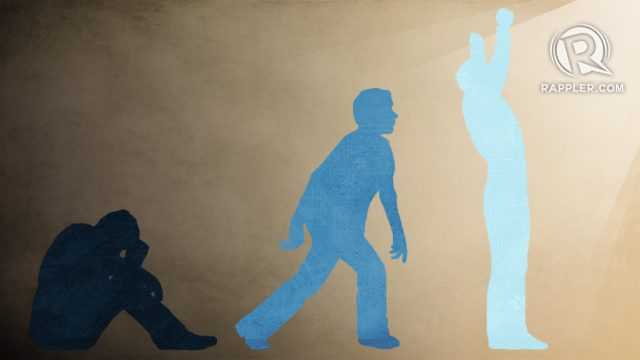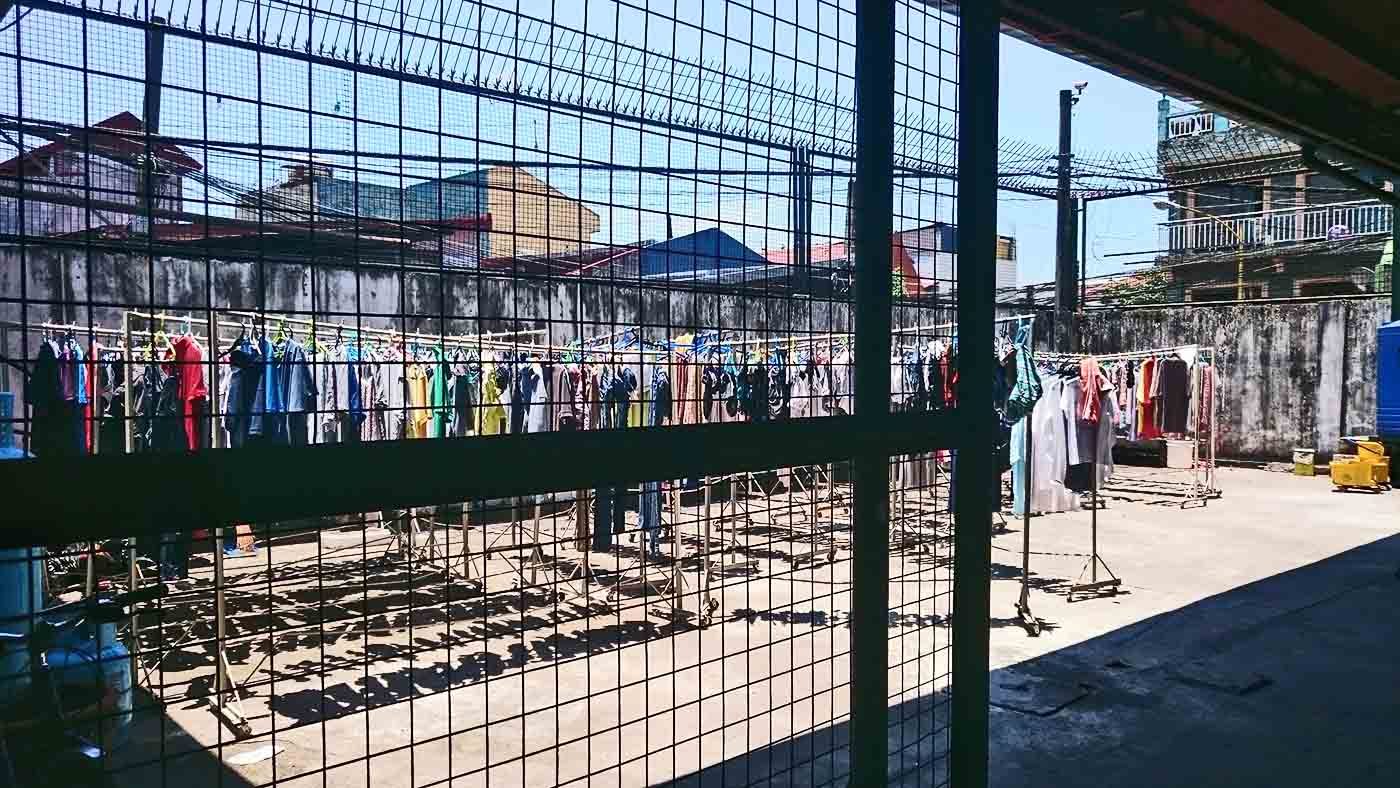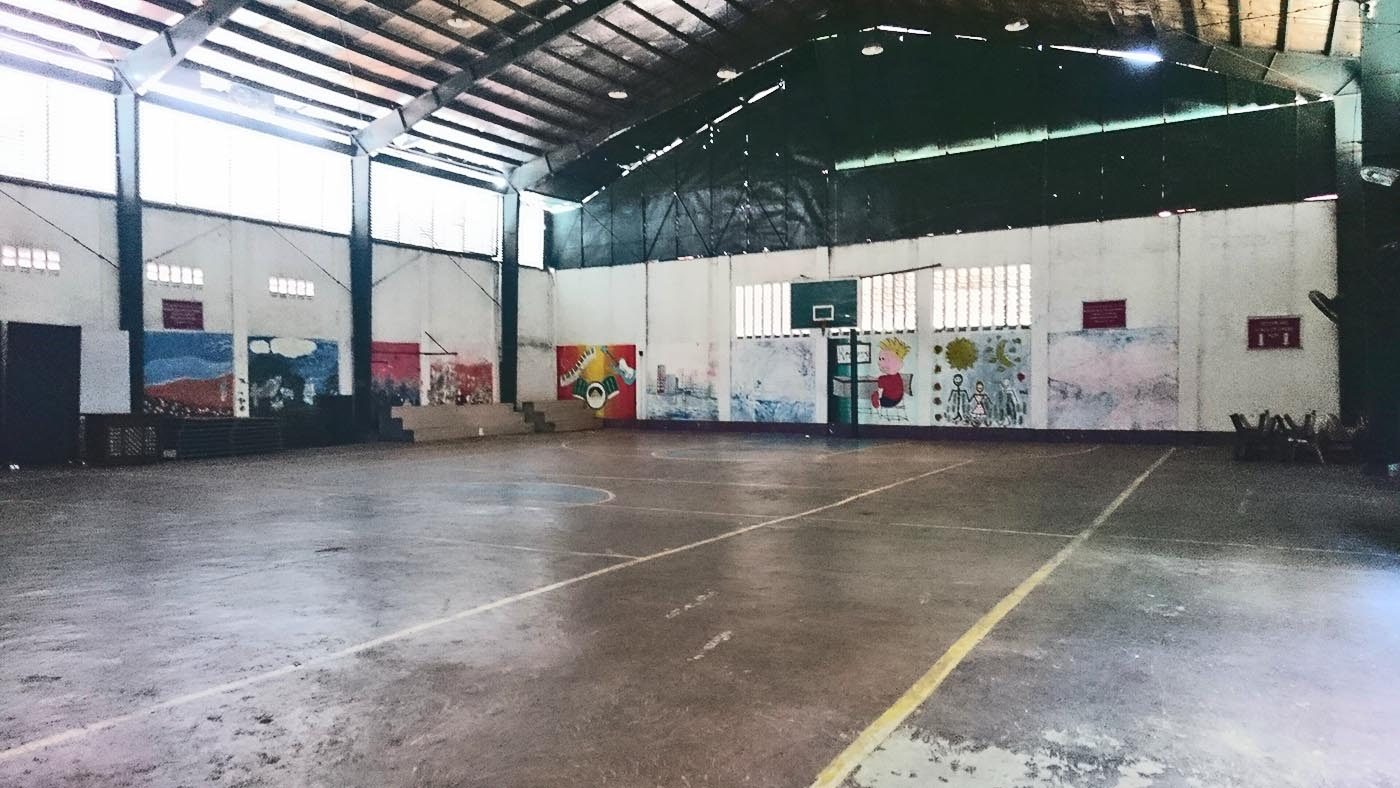SUMMARY
This is AI generated summarization, which may have errors. For context, always refer to the full article.

Along Dr. Sixto Antonio Avenue in Pasig can be found two nondescript buildings, adjacent to each other, with no signs or whatsoever. The only mark of their identity is the number 520, embossed in metallic plate.
“It’s the one in cream and brown,” said the woman I talked to on the phone. I was lost, and not many people in the neighborhood knew about the center. Not the woman selling food in a mini-store along the avenue; not the tricycle driver working in the area.
It was 11 in the morning, 26th of June. The sun was up high in the sky; the temperature very much humid. After half an hour of looking around for the cream and brown building, I finally found the place.
It was cool and quiet inside. Marble floors and glass walls. I was ushered in by a 29-year-old man named Chuck. He was wearing grey glasses, stood at about 5’5, and weighed around 150lbs. He had a warm smile that contrasted with the cold vibe of the place.

Curiosity and euphoria
Chuck was a former trainee of the center. Trainee, not patient, is what they call those who undergo their program. He has had a long history with substance abuse, one that is not yet and will never be over, he said.
It all started with curiosity. He was curious about what those people he saw in the TV were doing, inhaling solvents and rugbies; curious as to how it feels. Inhalants were his drug of choice, and he was mocked for it. That’s only for street boys, he was told.
From the moment he first tried it, it soon became a daily habit. “I took it and I liked the feeling of euphoria,” he said. He also tried marijuana and shabu, but went back to his preferred drug. Solvents and rugbies, after all, are cheap and accessible.
Aside from substance abuse, he was also an alcoholic. “I was a heavy drinker, to the point where I would black out,” he said. And like many others, he did not accept at first that his drinking was a problem. “I thought I was just an occasional drinker.”
He was brought several times to pscyh wards, but it did not change his habit of substance abuse and heavy drinking. “I knew that it had bad effects, but I liked the feeling more,” he said.

Episodes from the past
He studied engineering for a year, but due to a violent incident caused by his drug use, he was expelled from the university. After, he went to a different university where he pursued a scholarship for computer technology.
“But the effect of drugs was too heavy on me,” he said. “I was restless the whole time.” With this, he was not able to sustain his scholarship. He then entered a seminary for three years, but his drug addiction persisted, forcing him to leave. One week after leaving, he entered his first rehab in Pampanga.
Where he stayed in Pampanga, corruption was a norm. “It was just like prison,” he said. There was a hierarchy among the trainees where the ones at the top got small privileges such as having the best view of the small TV, and getting free massages. “I’m small but I don’t know how I did it,” he said, referring to climbing up the hierarchy. “If I didn’t do it, I would’ve been a slave of the group.”
After his stint in Pampanga, he entered TESDA and had an OJT. But five days before ending his OJT, he withdrew, again because of the effects of drugs on him. His family took him for a short while, and he continued engineering in a different university. However, after only a year there, he returned to his old habits, leading him to enter his second rehab.
“It’s a continuous thing that cannot be stopped if there’s no support and proper coping mechanism,” he said of his situation. (READ: Talking to your kids about sex, drugs, and rock and roll)
Dark days
Back in his college years as an engineering student, he would inhale solvents in order to stay awake, do more school requirements, and cope with stress. But all these were just secondary reasons according to him. “The real reason is that it felt good,” he said. “It’s as simple as that.”
It came to a point where Chuck completely lost control of himself, and he was brought back to the psych ward where he was diagnosed with drug-induced schizophrenia. It’s a disease that makes people shut you out, he said. In addition, he was also diagnosed with several other drug-induced disorders. He was even once told that his situation was irreversible.
His family found his situation hard to accept. “I was the only one in my family who was like that,” he said. He was abandoned by his family, saying that he did it to himself so he should also be the one to help himself. But luckily, some were willing to help him with his recovery.
“The problem with me is that I kept on relapsing,” he said. “There’s the regret and the willingness to change, but the urge is very strong.”
According to him, his case was more of not having control than having the guts to do things. With no control over his actions, he once assaulted his father, brother, and some friends. It was this unfortunate event that led his family to seek professional help.
“I cannot change and control myself without any intervention. Even after rehab, I have to have support,” he admitted. Support, for him, does not necessarily mean family. It’s more of the people who understand his situation. It takes one to know one, he believes.
Until now, he still hears judgmental comments from people every now and then. “Even if I know that they just don’t understand what I’m going through, it still hurts every time I hear those comments.” This brings back bad memories and the urge to return to his old ways. (LOOK: Drug rehabilitation center in Davao)

The unpaved road to recovery
A recovering person, according to him, is very fragile. Anything can become a trigger, be it the sight of liquor or a cigarette, or any incident that he finds stressful or depressing.
For Chuck’s case, he had been to two rehabs before. The second one was successful, but the first was a complete failure. He attributed it to the lack of personnel, facilities, and the overall unconducive environment of the center. “After I got out the first time, instead of changing my ways, my drug abuse was just reinforced because of the lack of processing.”
A conducive environment, for him, is one where there is constant one-on-one counseling in order to first control the withdrawal symptoms of the trainees, which is a particularly difficult part of the recovery.
“Addiction is a disease of making choices,” he said. “Our priority is no longer survival, but to do drugs.” This mindset, according to him, leads others to do horrible crimes like murder and rape. “Still, I believe that people deserve second, third, and several chances.”
While he has accepted his situation and his ability to change, he said that it is not the same for others. “It’s hard to accept a situation that you don’t believe in,” he said, and this is the reason why many find it hard to undergo the necessary pressure of recovery. According to him, someone not in the right mindset will see the process as torture.
After he completed the program, he was allowed to go out of the center. He stayed for a while with his father in Alabang, but realized that it was not healthy for him. “There was just so many triggers,” he said. His father often drinks, and it was hard for him to reject his father’s offer to drink with him. This led him to come back to the center and live there. He pays for board and lodging, and for five years now, it is the place he calls home. (READ: Ex-drug addict turned congressman to probe “cheap” rehab programs)
Looking ahead
At present, the center is paying for his studies. He is currently taking up social work in a university in Manila. When he is not at school, he works in the center as a program staff. “It’s actually good because I’ve already experienced some of the things that I learn in school working as a social worker here,” he said.
For him, his hectic schedule balancing work and school is better because there is no idle time. “Idle time entertains bad thoughts,” he said.
With all that he has gone through, his biggest realization is that he can choose for himself. “In everything I do, I have choices,” he said. He used to see himself only as a victim of circumstances, having no ability to control his life.
“I still see myself as a victim, but I know now that I have the choice to either stay a victim or be part of the solution,” he said. “If I choose to be okay, I know that I will be okay.” – Rappler.com
Do you know someone who is or was addicted to drugs and wants to tell their story? Send us an email: move.ph@rappler.com.
Are you a drug user and are looking for counseling? Here is a list of drug rehabilitation centers accredited by the Department of Health and the Dangerous Drugs Board.
Renzo Acosta is a student at the University of Santo Tomas and a Rappler intern.
This article first appeared on Rappler X.
Add a comment
How does this make you feel?
There are no comments yet. Add your comment to start the conversation.